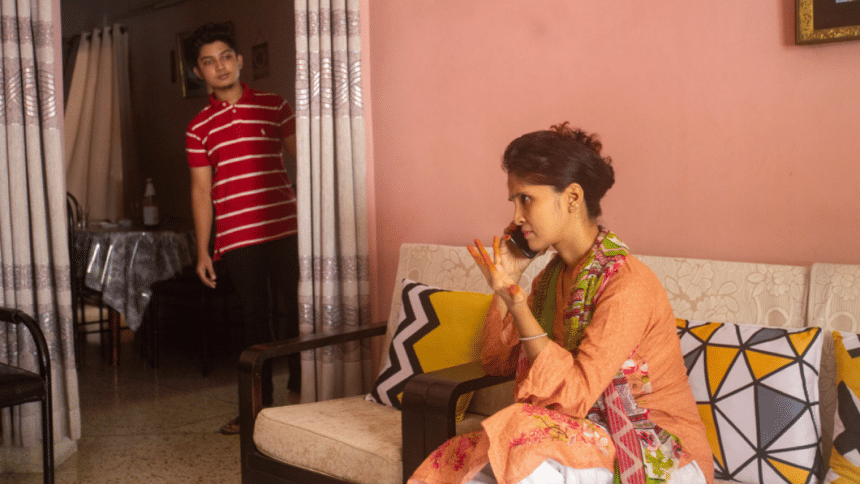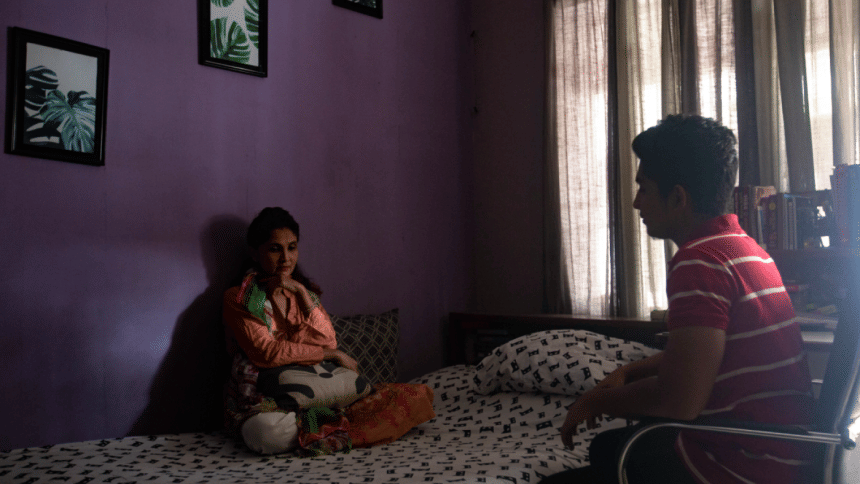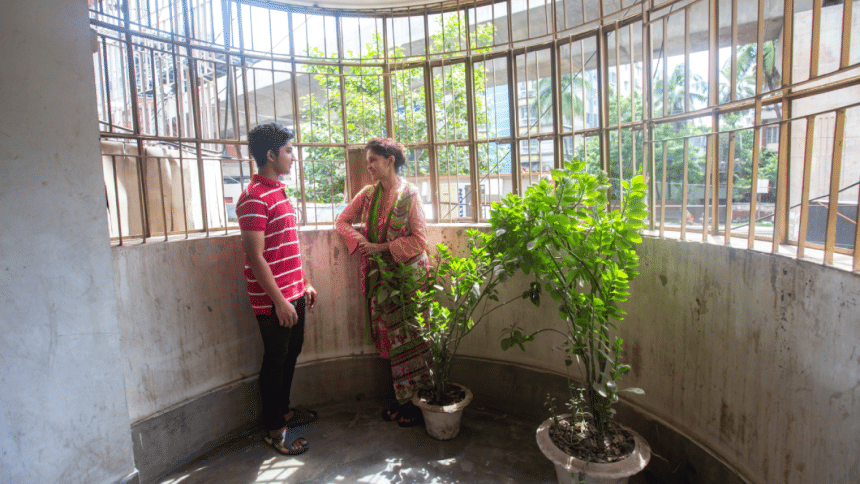Tackling the Talk: Parents and their Mental Health

"One of my most painfully confusing childhood memories is of living at my khalamoni's place with my mom who back then used to sleep 12 hours a day," says 22-year-old Sarah Tasmiah*.
"It wasn't our usual vacation, you see. I used to wonder what was going on and cry myself to sleep thinking what if one day she doesn't wake up. My small arms would then wrap tightly around the even smaller frame of my younger brother, vowing to protect him if the worst happens.
"My worries proved to be wrong. Years later, I understood that it was when my mom was suffering from depression and staying at my khalamoni's place was meant to give her the time and space needed to heal," recounts Sarah.
To see your loved one suffering from mental illnesses is a painful experience. It becomes worse when you try to start a conversation about it only to be met by multiple layers of barriers.
Sarah continues, "Despite my mom's encounter with depression throughout the years, now as a young adult when I try to convince my father he needs professional help for his exceedingly severe anxiety, he refuses to acknowledge he has a mental health issue. He cannot seem to come to terms with the fact that mental illness is not something to be ashamed of. So, conversations about this end with inevitable fights."

Shahadat Hossain*, a 23-year-old graduate speaks of a similar experience. He realised recently that his mother has been suffering from mental illnesses for a while. Since then he has been trying and failing to convince his mother to seek professional help.
When asked about how this has affected his relationship with his mother, Shahadat shares, "It has caused quite a bit of contention between us for things that we shouldn't be arguing over. It's not so bad most of the time but every once in a while, it hurts to deal with and kind of drives me crazy. I worry for her a lot."
The cycle of pain does not end here. Mentally-ill parents who refuse to seek help often become the source of mental illness for their children.
Thirty-year-old Afrah Anjum* says, "Their (parents') mental health issues have contributed to my depression, fatigue, anxiety, PTSD, OCD and other chronic illnesses."
Unable to convince them to seek help, Afrah decided to focus on her own mental health instead.
"I sought clinical counselling and have been committed to the practice since 2018. I had to accept that my parents are beyond help, so I decided to work on my communications skills in order to unlearn the behaviours and values taught at home," says Afrah.
Our parents bear the burden of the generational trauma caused by war, famine, displacement and poverty while being unable to ask for help in fear of a society desperate to label them "pagol". It's not surprising then that, according to a 2018-2019 National Institute of Mental Health (NIMH) survey, the overall percentage of people aged 18 and above who are suffering from mental health issues is 18.7 percent.
Rubina Afroz*, a 50-year-old mother of two says, "I dealt with severe depression long before it was accepted as normal. Luckily my family was supportive and financially well-off. I have experienced how treatment can heal mental illness like any other physical disease. Yet, I cannot say I am free from the stigma that haunts everyone from my generation. Even today I hesitate to tell people. I make sure not to go to a therapist in my neighbourhood. The thought of being discovered by people I know scares me."

According to the study titled "The current state of mental healthcare in Bangladesh", the stigma surrounding mental health is one of the main causes of people not seeking help by the study. It states that "High social stigma attached to mental illness also affects help-seeking behaviour. Consequently, mentally ill persons suffer in silence, with social isolation and discrimination."
On top of that, most people who belong to our parents' generation do not understand what mental illness is or the different types of help one can get to deal with it. This leads them to believe having a mental disorder is a sign of weakness and generally a bad thing to have. So when someone, especially their child tries to start a conversation about this, it is often perceived as offensive.
Beyond the stigma and a general lack of understanding, there is also financial barriers that often prevent them from seeking help. Even people who can afford treatment tend to be weary of therapy, dismissing it as waste of money. It is difficult for a lot of Bangladeshi parents to see the benefit of simply talking to a professional.
Mental illness cannot be destigmatised overnight. Especially for our parents who lived through the time that refused to acknowledge mental health problems as normal. A time that labelled patients' as "pagol" and came up with nightmares like "pagla garod" in the name of mental asylum.
So, how can we start a conversation that leads them toward seeking professional help? The answer lies in a slow indirect approach that let's our parents warm up to and start understanding the idea of mental illness first.
Clinical psychologist at Border Guards Bangladesh Dr Md. Ashadujjaman Mondol explains that there are two types of mental disorders – psychotic and neurotic. In the case of neurotic disorders like anxiety or OCD, it is possible to give the patient some time to come to terms with their disease.
In the case of psychotic disorders, like schizophrenia, it is more difficult to make the patient understand as they are often detached from reality. According to Dr Mondol, "In these cases, it is absolutely necessary to seek professional help by any means."
As for neurotic mental disorders, says Dr Mondol, "The patient's child can send their parents articles or videos explaining mental illnesses. If they start watching them or reading about them, slowly they will open up to the idea.

"They can also indirectly approach the topic. For example, rather than saying 'You seem to be struggling with mental illness, let's go to a psychologist' they can try 'You seem to be having difficulty doing XYZ, how can I help you?' or 'Let's talk to someone and see if you feel better.'"
The primary reason for parents not willing to seek help from a professional is stigma and lack of understanding. So, trying to slowly bring up the topic to destigmatise it, have general conversations about it to help them understand what mental health issues are or sugarcoating it by using indirect terms may be the best route for the children to take.
If this does not work, Dr Mondol recommends seeking a trusted family member or medical professional's help.
Although it appears simple, it will not be an easy conversation to have. Nor will it always bring results. However, we must start somewhere.
*Names have been changed upon request for privacy.
References
1. Cambridge University Press. (August 18, 2021). The current state of mental healthcare in Bangladesh.
2. National Institute of Mental Health. (November, 2019). National Mental Health Survey of Bangladesh 2018–19: Provisional Fact Sheet.
Tazreen is a freelance journalist and social science researcher struggling to find her footing in this world. Find her at [email protected]

 For all latest news, follow The Daily Star's Google News channel.
For all latest news, follow The Daily Star's Google News channel. 










Comments